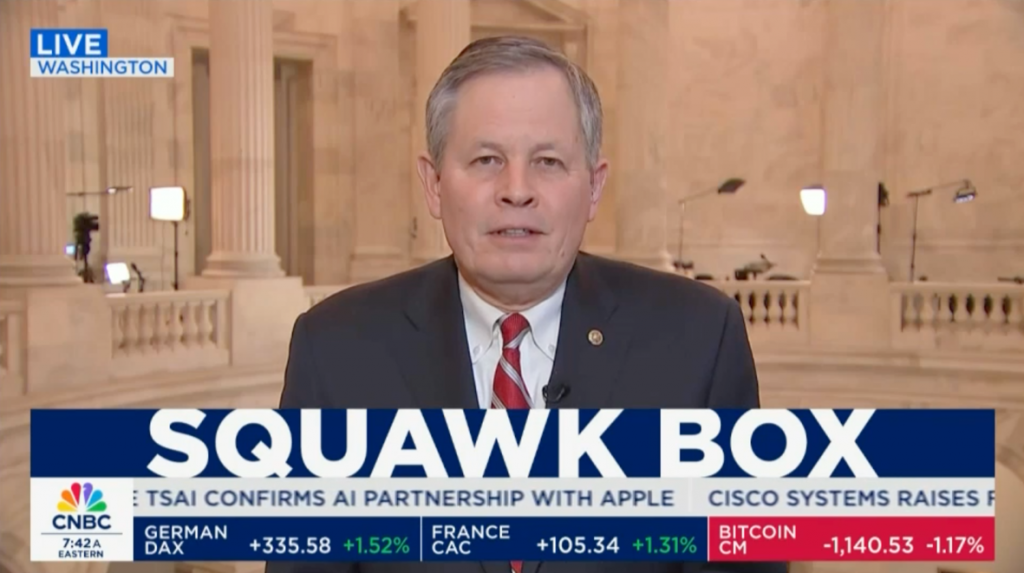Daines Led Letter to Trump Vowing to Oppose Any Bill Failing to Make TCJA Provisions Permanent
U.S. Senator Steve Daines today joined CNBC’s Squawk Box to discuss the letter he led to President Trump committing to oppose any tax package that only provides temporary relief from the impending tax hikes.

Watch Daines’ interview HERE.
Daines on the Need for Tax Permanency:
The single most important thing Congress can do to keep this economy growing is to make the Trump tax cuts of 2017 permanent. Small businesses, corporate America face a $4.3 trillion tax increase coming if we don’t act, and that starts next year. Permanence is a way that we can take away the uncertainty of what goes on in Washington, the burden we place on businesses across our country. I talked, in fact, to a small business owner yesterday from Montana, and she said this 30 percent tax increase that will be coming next year is really freezing her planning for her business. When you look at what we need to do to invest long-term in research and development, capital investments to compete globally, the most important thing we can do is take away the uncertainty of Washington and make the Trump tax cuts permanent. I’m open, and I think many of the members of the committee that have signed this letter are open, to turning the knobs and adjusting the tax policies a bit to make this work. But permanence has to be the position that we start with. We’ve got to remove this uncertainty because this is about global competitiveness. Remember back in 2017, when we lowered tax rates, the Chinese followed suit. They can see what we were doing here. This is key to spurring economic growth. It’s key as well to spurring research and development, the innovation needed here to compete. Keep in mind, though, for every 1 percent increase in GDP over that 10-year window, it’s about a $3 trillion increase in tax revenues. That goes back to the basics. When you spur the economy, by lowering taxes you actually increase tax revenues, and that’s one of the problems with the scoring methodologies here in Washington. They’re not dynamic in nature, they’re static in nature, and it understates what the revenues will be by lowering taxes, and we saw that proved with the tax cuts in 2017.
